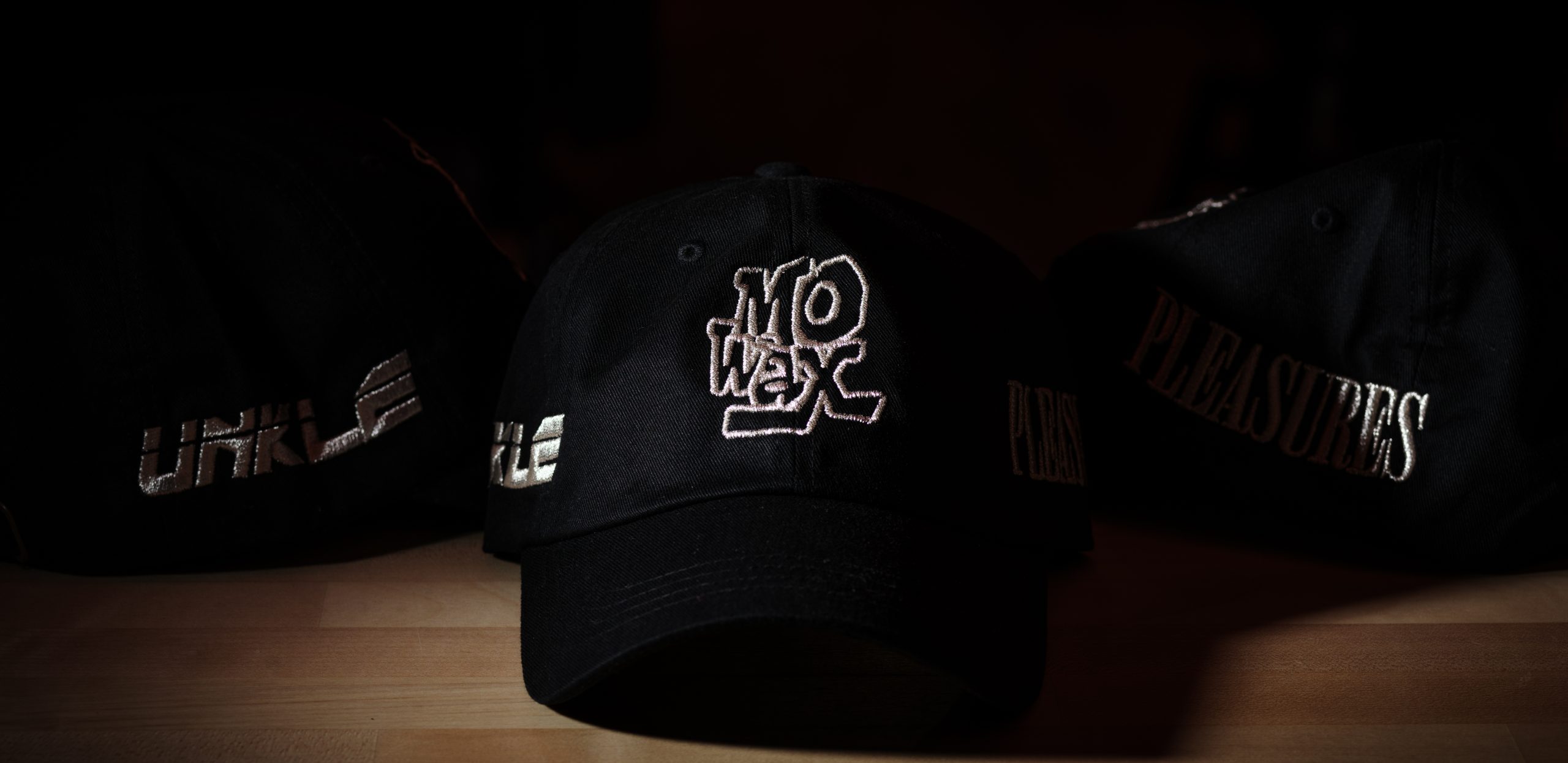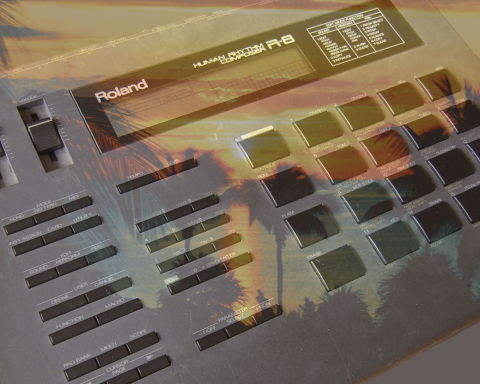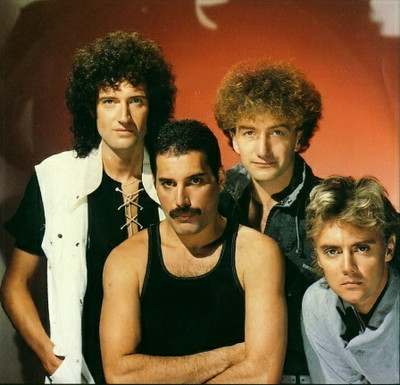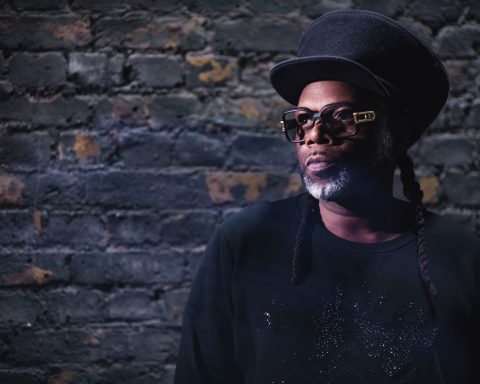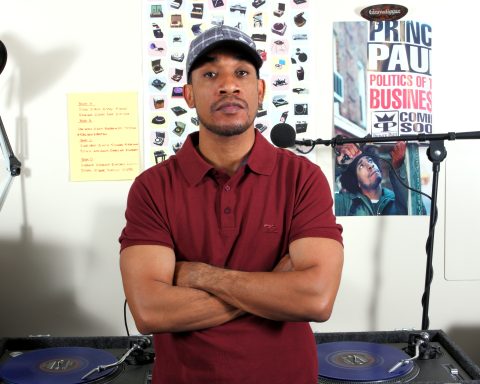Right from its start in 1992, the Mo’ Wax story was one of creativity and collaboration. The forward-thinking label served as headquarters and clubhouse for founder James Lavelle and his artistic partnerships. Today, the Mo’ Wax name is synonymous with the trip-hop and turntablism movements and remains a touchstone for hip-hop culture. Central to Mo’ Wax was Lavelle’s UNKLE project, an evolving collective that initially included DJ Shadow and continues to release groundbreaking sounds.
Alongside its musical output, Mo’ Wax produced toys and prints with artists like Mark Gonzales, Mike Mills, and Futura 2000. With this legacy, it’s no surprise Roland Lifestyle and LA-based streetwear brand PLEASURES joined forces to create a 4-way apparel collaboration in tribute to the iconic imprint. Lavelle and Alex James of PLEASURES shared their thoughts on the history and influence of Mo’ Wax Records.
Endtroductions
With a shortened version of the name of the Lavelle-penned magazine column “Mo’ Wax Please,” the label kicked off with a bang, issuing a slew of titles by the likes of DJ Krush, Money Mark, and the Federation. Quite a run for a label head who was barely out of school.
“I started it when I was 18, in 1992, and was running it for about ten years,” Lavelle shares. “We were very prolific and innovative in a pre-internet era of being a global label which straddled music and things like streetwear and contemporary toys.”
A pair of 1996 releases by Dr. Octagon and DJ Shadow further cemented Mo’ Wax as a tastemaker home for edgy, groove-based sounds. With its sampledelia aesthetic, DJ Shadow’s Endtroducing….. set the stage for the debut UNKLE release, Psyence Fiction. That album—featuring vocalists Alice Temple, Radiohead’s Thom Yorke, and Richard Ashcroft of The Verve—remains a classic, influencing scores of creatives, including a young Alex James.
“When I first heard Psyence Fiction, I was in middle school or starting high school,” James recalls. “I thought, ‘Wow, how can one artist have all these amazing people I love on one album?'” From there, James started hunting for influences. “I did a little more digging and found a world of different artists, sounds, instruments, everything.”
"When I first heard Psyence Fiction, I was in middle school or starting high school. I thought, 'How can one artist have all these amazing people on one album?'"
ALEX JAMES (PLEASURES)
Strictly Turntablized
The Mo’ Wax effect James describes is symbolic of the label’s impact on the music scene, particularly vinyl-loving cratediggers. “The label became synonymous with a certain kind of instrumental hip-hop sound, which became known as trip-hop,” Lavelle says. “Artists like DJ Shadow—whose Endtroducing became a very celebrated record—had a lot of electronic collaborations and a lot of stuff in the mix.”
The sonic thumbprint was distinctive and spoke to the talents involved. “A lot of interesting music was coming and being made in a sample collage kind of way,” Lavelle affirms. “It was a brilliant mix of artists and people involved.”
Those were exhilarating days, and soon Mo’ Wax grew to encompass other disciplines. The label even began sponsoring gallery shows to showcase the artists designing its collectible cover artwork. “It was an amazing, eclectic time,” Lavelle says. “There were all these connections around the world. We worked with people like Bathing Ape in Japan and La Funk Mob in Paris.”
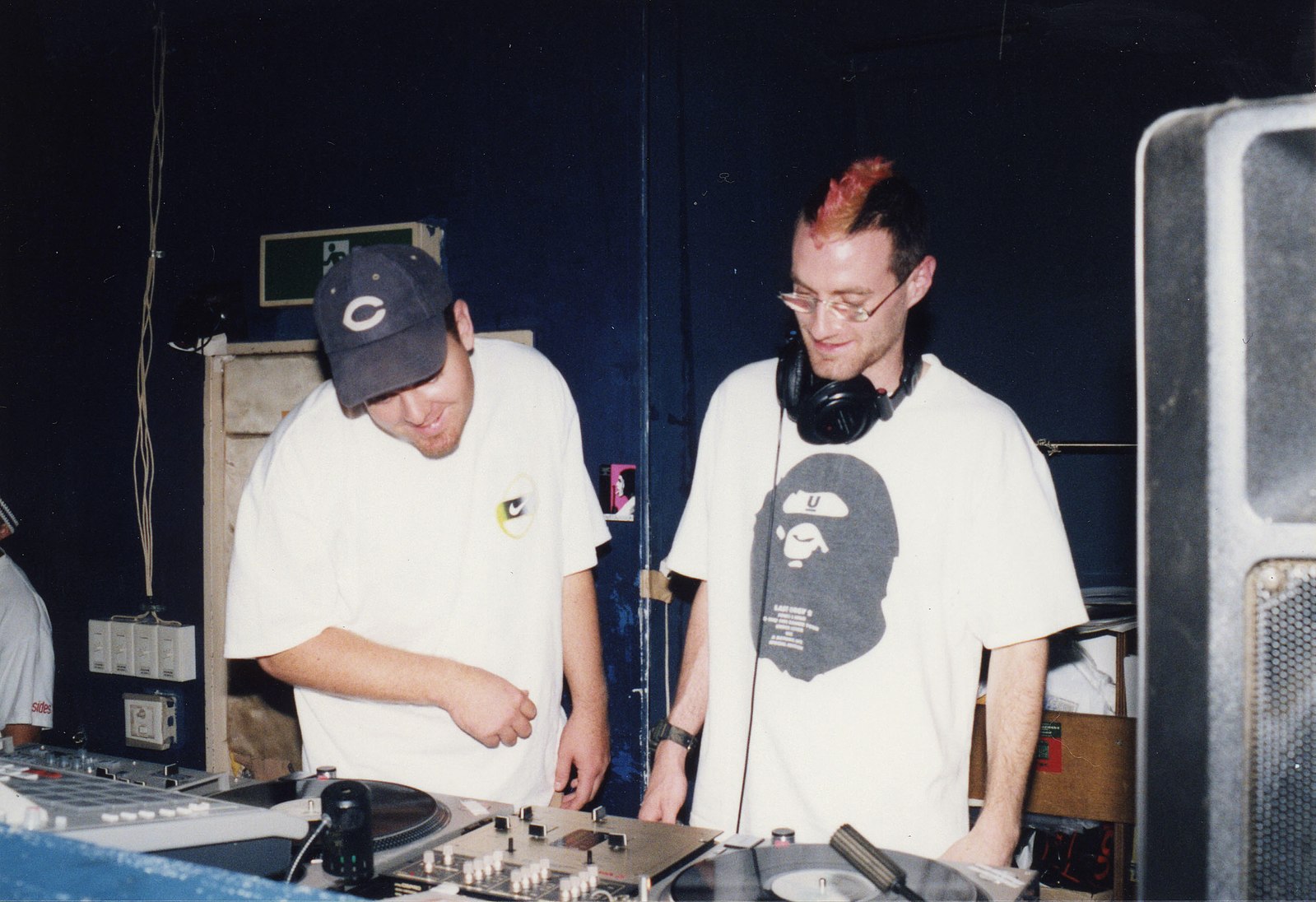
"It was an amazing, eclectic time. There were all these connections around the world. We worked with people like Bathing Ape in Japan and La Funk Mob in Paris."
JAMES LAVELLE
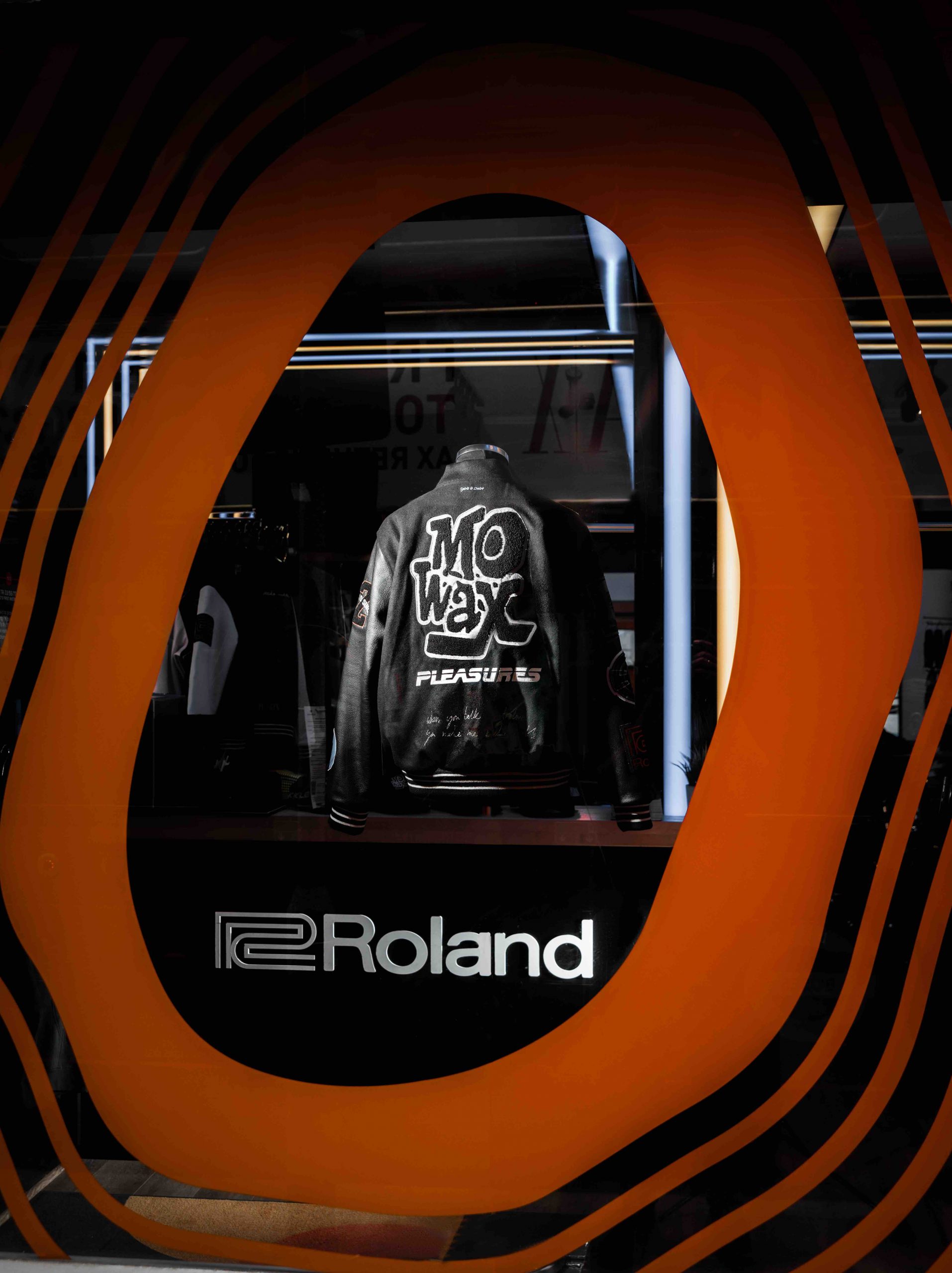
The Original Artform
The power of the label’s visual and sonic identity made a deep impression on the aspiring fashion auteur. “I got immersed in the Mo’ Wax-UNKLE world,” James explains. “Over time, I saw it pop up with Nike, Bathing Ape, and other brands.” When the opportunity came to add another chapter to the Mo’ Wax epic, he was ready. “I wanted to give it some justice and tell the story of the world James created.”
The relationship between the visual and the auditory is a two-way street. “Design and identity have always been a massive influence on Mo’ Wax, with UNKLE,” Lavelle says. “I’ve been lucky enough to collaborate with amazing visual artists over the years, from video and painting to working on exhibitions.”
Still, streetwear remains the fulcrum at the intersection of clothing and hip-hop culture. “Growing up in an era of earlier streetwear, I was trying create the sense of identity which came from wearing certain brands and sneaker culture.”
James feels the same way about the current Mo’ Wax PLEASURES alliance. “We’ve never made a varsity jacket as a brand,” he says. “This is OG crew-style music—this is street culture. Let’s make a crew jacket and have people who wear it feel like they’re a part of something.”
"This is OG crew-style music—this is street culture. Let's make a crew jacket and have people who wear it feel like they're a part of something."
ALEX JAMES (PLEASURES)
Push the Button
For a lifelong musician like Lavelle, the same sense of tribal identification extends to Roland instruments. “Roland has been a vital part of my life making music,” he shares. “Instruments have identities, and collecting synthesizers is a big thing. That’s what this is about, trying to join those dots together and show the links.”
He credits particular instruments and users with helping the evolution of sounds that would become intrinsic pieces of the Mo’ Wax puzzle. “When I was younger and seeing the beginnings of hip-hop like Afrika Bambaataa, ‘Planet Rock’ and the 303 being synonymous with acid house. It was not like anything that came before.”
To Lavelle, Roland is a crucial part of the Mo’ Wax aesthetic. “Roland is synonymous with records I grew up with as a kid and a fascination with synthesizers and Japan.”
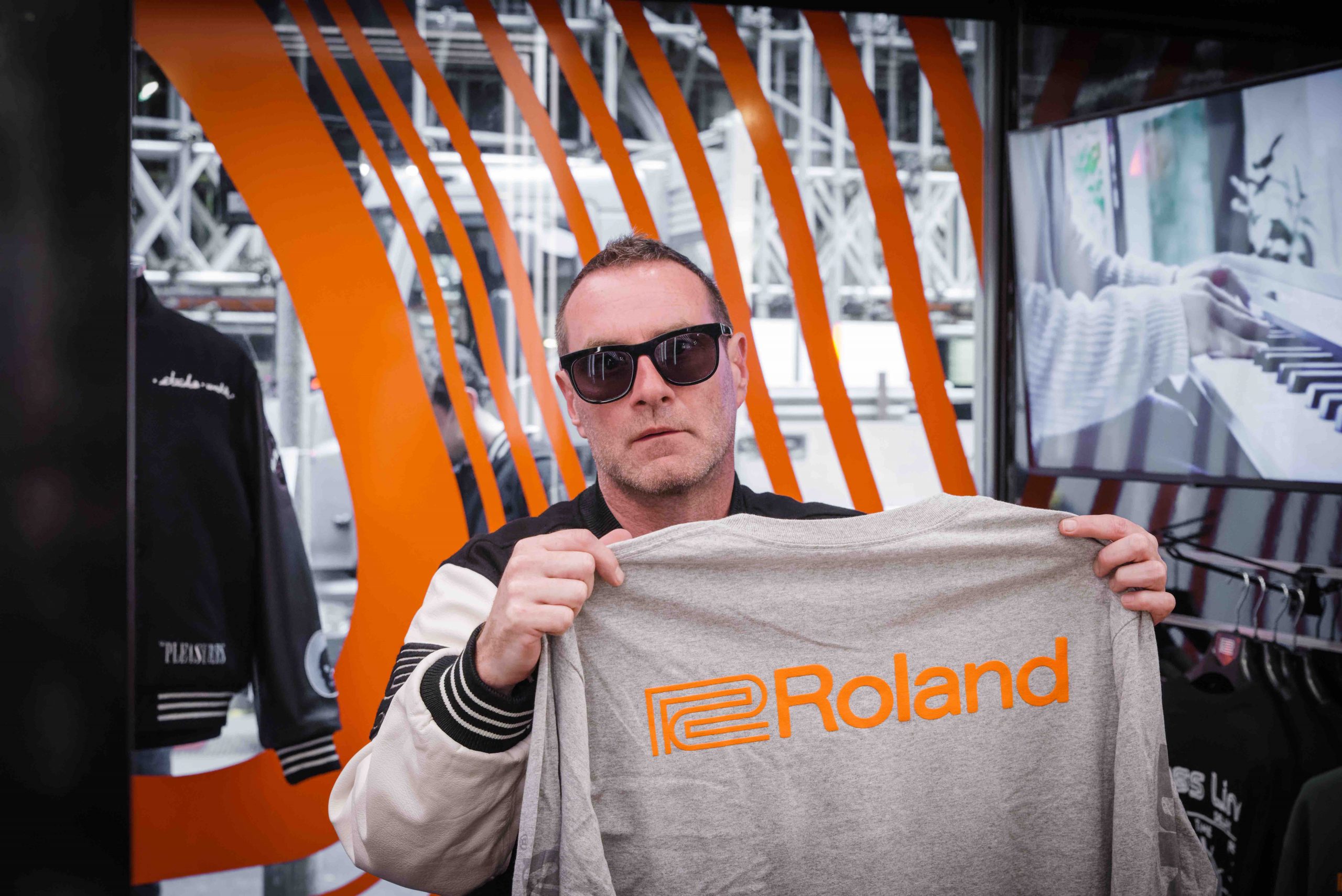
"That ethos is about something that can connect us all. Being able to collaborate and work with different creative people is what I thrive for."
JAMES LAVELLE
From Here On In
While Mo’ Wax is no longer an active record label, Lavelle continues to put out music frequently, always with a rich, intricate sound pallet and star-studded guest list. 2019’s The Road: Part II / Lost Highway boasts Dhani Harrison, Mick Jones, and the late Mark Lanegan among its many voices. “I’ve just released a new project called Rōnin II,” Lavelle says. “It’s a follow-up to a Rōnin I, a series of mixtapes where I remixed some recent work, and there are some new tracks.”
And his story continues to enthrall music fans. An acclaimed documentary, The Man from Mo’ Wax speaks to the label’s continued appeal. Still, it’s all about the collective for Lavelle. “I believe in community, keeping an open mind, and trying to push boundaries and experiment,” he says. “It doesn’t matter whether you’re young or older or whatever. That ethos is about something that can connect us all. Being able to collaborate and work with different creative people is what I thrive for.”
To James and PLEASURES, the opportunity to expose new audiences to Mo’ Wax and UNKLE is powerful. “UNKLE, Mo’ Wax, PLEASURES, and Roland encompass sound, music, art, fashion—everything in one,” James explains. “We wanted to educate about the importance of the history of Mo’ Wax and James Lavelle and his collective UNKLE.”
